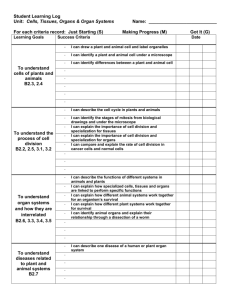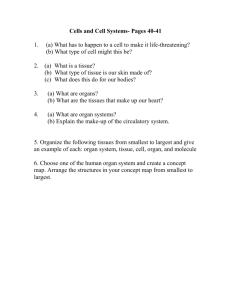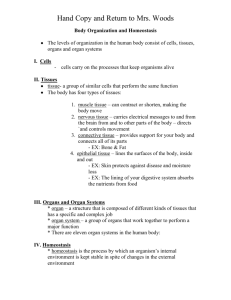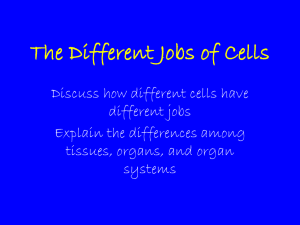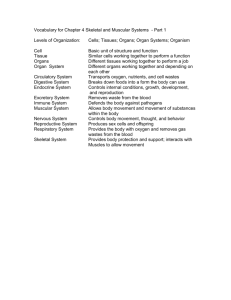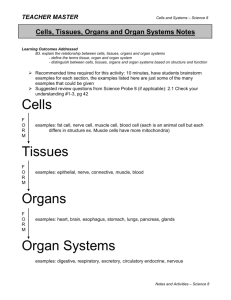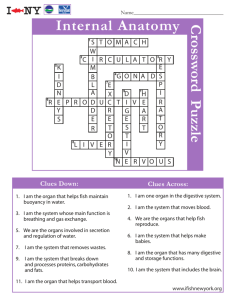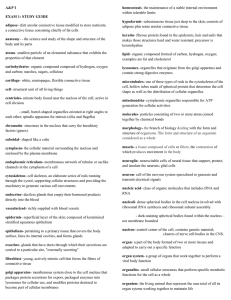organ
advertisement
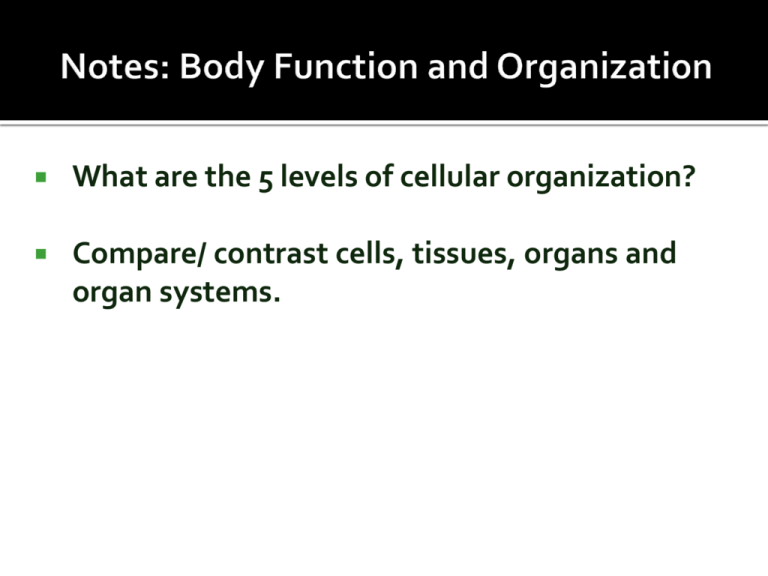
What are the 5 levels of cellular organization? Compare/ contrast cells, tissues, organs and organ systems. Levels of Cellular organization: Cell tissue organ organ system organism Levels of Cellular organization: Cell tissue organ organ system organism Example: bone connective bone skeletal person cell tissue system Cells are microscopic and contain organelles. (ribosomes, mitochondria, nucleus….) Organelles are cell structures that carry out the processes which keep organisms alive. A tissue is formed when many of the same type of cells work together. There are four basic types of tissue: muscle tissue nervous tissue connective tissue epithelial tissue Organs can be composed of many different types of cells and tissues. Living things may be similar or they may have unique organs that allow them to survive in their habitat. Examples: Organs can be composed of many different types of cells and tissues. Living things may be similar or they may have unique organs that allow them to survive in their habitat. Examples: heart, lungs, wings, ears, echolocation ‘radar’, roots, leaves, seeds When different organs work together an organ system is created. Each organ system has specific functions in order to maintain homeostasis.
